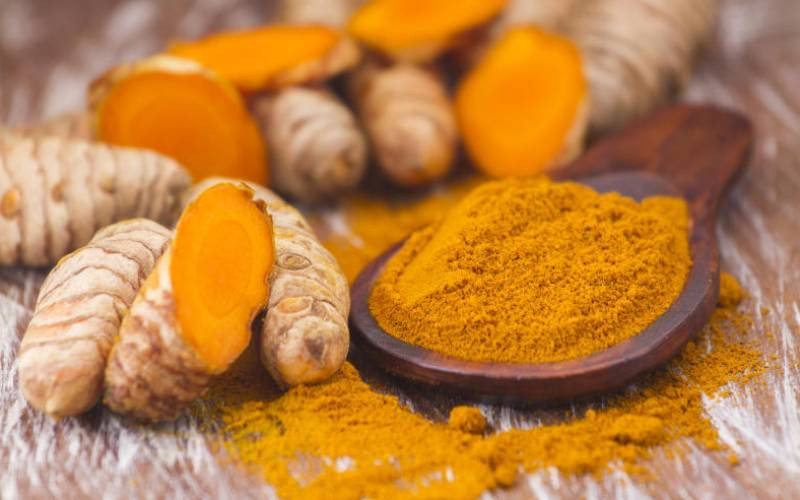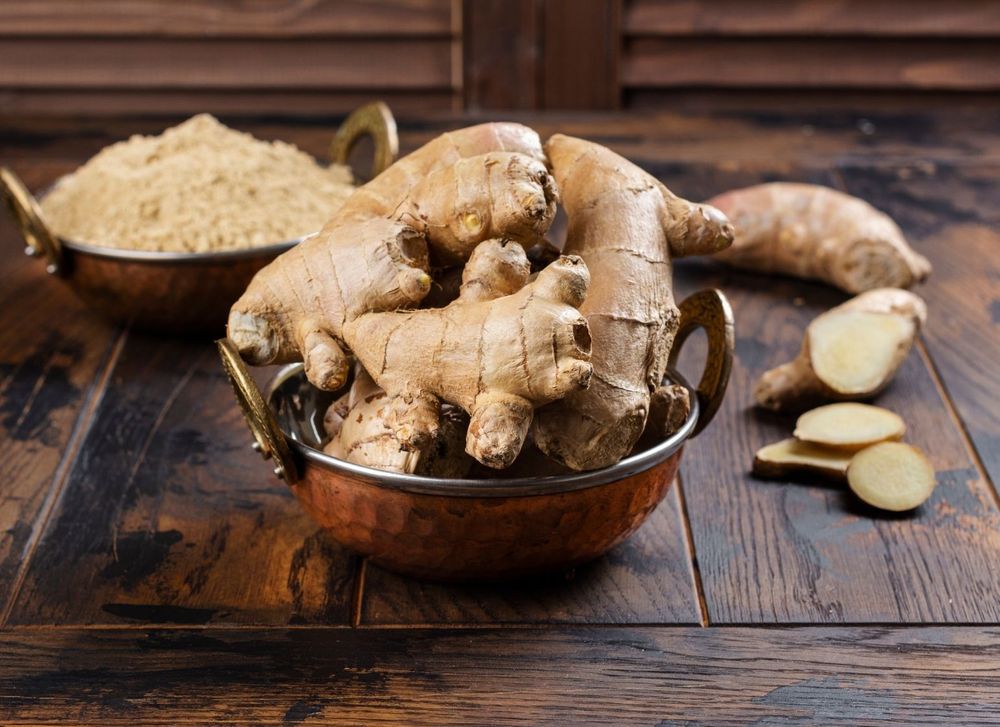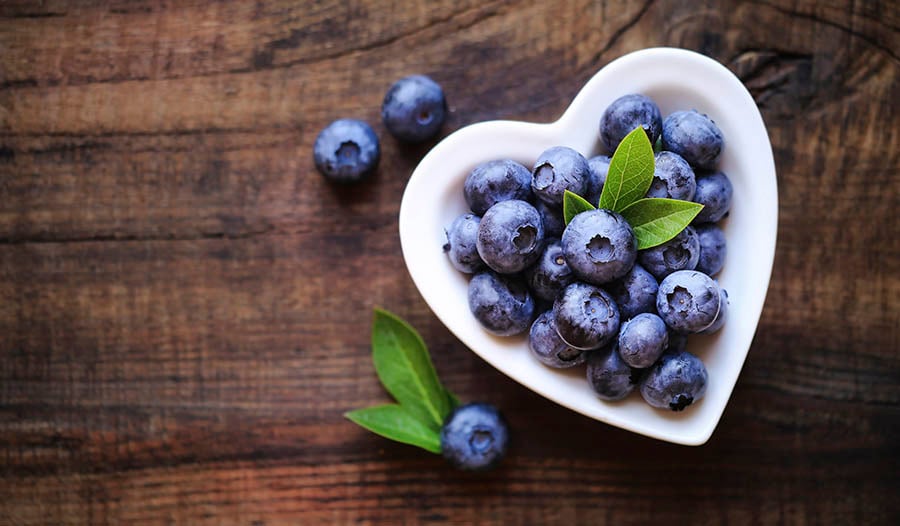HEALTHY LIVING
7 Herbs That Heal Various Organs In your Body
Published
7 months agoon

Did you know that some herbs can actually heal various organs in your body? Did you know these herbs can also boost your organs with their natural healing abilities? It’s true! For centuries, people have turned to plants for remedies, and for a good reason.
Plants are full of unique chemical compounds that offer a variety of potential health benefits. Herbs, in particular, can be a great way to complement modern medicine. Think of them as gentle allies, working alongside your doctor-prescribed treatments.
These herbs can help different organs in your body function better and even heal from minor issues. By incorporating them into your diet, you can promote overall well-being and give your body the natural tools it needs to thrive.
7 herbs to heal different organs in your body
Ever wonder if there are natural ways to support your body’s organs and systems? Look no further than these seven herbs!
1. Milk thistle: liver guardian

This herb has been a champion of liver health for centuries. The active ingredient, silymarin, acts like a superhero, shielding your liver cells from damage caused by toxins, inflammation, and even free radicals (unstable molecules that can harm healthy cells).
Silymarin also promotes the regeneration of liver cells, aiding in the healing process. Milk thistle is a great choice for people with existing liver conditions like hepatitis or cirrhosis.
It can also be a valuable ally for those who want to protect their liver from the potential harm caused by alcohol, certain medications, or environmental toxins.
2. Hawthorn: heart hero

For centuries, people have relied on hawthorn to keep their hearts strong and healthy. This herb works in multiple ways to improve cardiovascular health. It improves blood flow by relaxing blood vessels, allowing blood to pump more efficiently throughout the body.
Hawthorn also strengthens your heart muscles, enabling them to contract with more force and pump blood more effectively. Additionally, hawthorn can help manage conditions like high blood pressure and irregular heartbeats (arrhythmias).
Packed with antioxidants, hawthorn combats oxidative stress, a major contributor to heart problems. Oxidative stress damages cells and tissues over time, and in the heart, it can lead to weakened muscles and decreased function. By reducing oxidative stress, hawthorn helps protect your heart and keep it functioning optimally.
3. Ginseng: lung energizer

Ginseng is a powerful adaptogen herb, meaning it can help your body adapt to stress and improve its overall resilience. It’s known for boosting your overall health and immunity.
For your lungs specifically, ginseng can improve your breathing by relaxing airway muscles and reducing inflammation. This allows for better airflow and helps your body take in more oxygen. These benefits make ginseng especially helpful for people with chronic obstructive pulmonary disease (COPD) or asthma.
By improving lung function and reducing inflammation, ginseng can help ease symptoms and improve their quality of life.
4. Turmeric: joint soother

The magic ingredient in turmeric is curcumin, a powerful anti-inflammatory and antioxidant compound. While joints aren’t technically organs, they’re crucial for movement and overall health. Turmeric can help reduce inflammation and pain caused by arthritis.
Inflammation in the joints is a hallmark characteristic of arthritis, and curcumin’s anti-inflammatory properties can help reduce swelling, stiffness, and pain. This translates to better joint function and mobility, allowing you to move with more ease and comfort.
5. Ginger: tummy tamer

Ginger is a common household remedy for digestion woes. It can help ease nausea, bloating, and improve your overall digestive process. The active ingredients in ginger, gingerols and shogaols, have anti-inflammatory and antioxidant properties.
These properties help soothe the digestive tract, reduce inflammation, and relax muscles that can contribute to nausea and discomfort. Ginger is a great choice for a variety of stomach woes, from indigestion and heartburn to motion sickness.
6. Cranberry: UTI protector

Cranberries are superstars when it comes to preventing urinary tract infections (UTIs). The secret lies in proanthocyanidins, compounds that stop bacteria from sticking to the walls of your urinary tract.
UTIs occur when bacteria enter the urinary tract and multiply. By preventing bacteria from adhering to the lining of the urinary tract, cranberries can significantly reduce your risk of infection.
Regularly drinking cranberry juice or taking cranberry supplements can help maintain a healthy urinary system, especially if you’re prone to UTIs.
7. Blueberry: brain booster

Blueberries are a delicious way to give your brain a boost. They are packed with antioxidants, especially anthocyanins that help shield your brain from damage caused by oxidation and inflammation. Oxidation is a natural process that occurs in the body, but it can also damage brain cells over time.
Anthocyanins act as antioxidants, neutralizing free radicals and protecting brain cells from oxidative stress. Inflammation can also contribute to cognitive decline and neurodegenerative diseases. The anti-inflammatory properties of blueberries may help protect brain cells from inflammation and promote overall brain health.
Studies have shown that eating blueberries regularly may be linked to improved memory, sharper thinking, and a reduced risk of neurodegenerative diseases like Alzheimer’s.
Important reminders
While these herbs offer great potential benefits, it’s important to talk to your doctor before adding them to your routine, especially if you’re taking medications or have underlying health conditions.
Some herbs can interact with medications, so it’s crucial to get your doctor’s green light before incorporating them into your regimen.
Also, make sure you get your herbs from a reliable source to ensure they’re safe and effective. Look for reputable brands that sell high-quality herbs
For more articles like this, visit here.
HEALTHY LIVING
5 Ways To Stay Healthy This Christmas Season
Published
1 month agoon
December 21, 2024
The Christmas season is full of joy, food, and celebrations, but it can also be a time when health routines fall by the wayside. To stay healthy during the festive period, adopting mindful habits is key.
Here are five actionable strategies to ensure you enjoy the festivities while prioritising your well-being.
1. Make Balanced Food Choices
The holiday season is synonymous with indulgence. While it’s tempting to try everything on the table, opt for a balanced approach. Start meals with proteins and vegetables, which keep you full longer and stabilise your blood sugar.
Enjoy festive treats in moderation, allowing yourself small portions of your favourites without overindulging. By practising mindful eating, you can savour holiday flavours without guilt.
Staying hydrated is equally important. Drink plenty of water to counterbalance rich foods and avoid excessive sugary beverages or cocktails. Alternating alcohol with water is a good way to maintain balance during parties.
2. Prioritise Regular Exercise
Exercise doesn’t have to stop during the Christmas season. Incorporate simple physical activities like morning walks, quick home workouts, or even yoga to maintain your energy levels and reduce stress.
A 10–15 minute walk after meals can aid digestion and manage blood sugar levels. Staying active ensures you feel energised and offsets the effects of holiday indulgences.
3. Manage Holiday Stress
The Christmas season can be hectic, with endless to-do lists and social events. Combat stress by practising mindfulness and setting realistic expectations for your time.
Take breaks when needed, meditate, or engage in activities that help you unwind. Organising your tasks and delegating responsibilities can also alleviate pressure.
4. Get Adequate Sleep
Sleep is crucial for overall health, especially during a busy festive period. Poor sleep can lead to increased cravings and mood swings, making it harder to stick to healthy habits. Aim for 7–8 hours of rest each night.
Create a calming bedtime routine by avoiding screens, dimming lights, and reading a book to relax. Staying consistent with your sleep schedule will keep your energy levels high throughout the Christmas season.
5. Plan Ahead for Healthier Choices
With back-to-back events, it’s easy to fall into unhealthy eating habits. Preparing healthy snacks like nuts, boiled eggs, or fruit ensures you have nutritious options on hand.
Planning meals and snacks ahead of time helps avoid impulsive decisions, keeping your health goals on track even during the busiest days.
Enjoy the Festivities While Staying Healthy
By focusing on mindful eating, staying active, managing stress, sleeping well, and planning ahead, you can enjoy the Christmas season while maintaining your health. Balancing fun with wellness ensures you start the new year feeling your best.
If you found this article helpful, read more here.

Garlic is more than just a flavour enhancer; it offers numerous health benefits that have been celebrated for centuries. Incorporating garlic into your meals not only enriches the taste but also boosts your overall well-being.
Let’s explore five key health benefits of garlic, emphasising why this simple ingredient deserves a spot in your kitchen.
1. Boosts Heart Health
Garlic is renowned for its heart-protective properties. It helps lower blood pressure and reduces cholesterol levels, which are crucial factors in maintaining cardiovascular health.
Allicin, a compound found in garlic, relaxes blood vessels, improving blood flow and reducing the risk of heart disease.
Regular consumption of garlic may also prevent artery hardening, a condition known as atherosclerosis. Clearly, one of the primary health benefits of garlic is its contribution to a healthy heart.
2. Strengthens the Immune System
Garlic acts as a powerful immune booster. Its antibacterial, antiviral, and antifungal properties help the body fend off infections. Rich in antioxidants, garlic combats free radicals that can damage cells and contribute to illness.
Cooking with garlic regularly can support your immune system, making it more resilient against common colds and flu. This vital health benefit of garlic makes it a natural defence mechanism.
3. Improves Digestive Health
Garlic promotes healthy digestion by stimulating the production of digestive enzymes. Its antimicrobial properties can help balance gut flora, reducing harmful bacteria and promoting beneficial ones.
Additionally, garlic may reduce inflammation in the gut, alleviating symptoms of conditions like irritable bowel syndrome (IBS).
Including garlic in your diet can improve overall digestive function, emphasising another essential health benefit of garlic.
4. Enhances Bone Health
Surprisingly, garlic may also support strong bones. It contains minerals like calcium, manganese, and selenium, which are vital for bone density and strength.
Some studies suggest that garlic consumption can increase estrogen levels in women, potentially reducing the risk of osteoporosis.
This lesser-known health benefit of garlic highlights its role beyond the kitchen, contributing to long-term skeletal health.
5. Supports Detoxification
Garlic aids the body’s natural detoxification process by activating liver enzymes that help eliminate toxins. Its sulfur compounds enhance liver function, enabling the body to flush out heavy metals and harmful substances more efficiently.
Regularly cooking with garlic can provide a natural cleanse, supporting overall vitality. This detoxifying health benefit of garlic underscores its importance for maintaining internal balance.
Incorporating Garlic into Your Diet
Maximise these health benefits by adding garlic to soups, stir-fries, and sauces. Crush or chop it and let it sit for a few minutes before cooking to enhance its beneficial compounds.
Remember, the health benefits of garlic are most potent when it’s used fresh and minimally cooked.
Cooking with garlic not only elevates your culinary creations but also offers significant health advantages. Embrace this versatile ingredient and enjoy the multiple health benefits of garlic with every meal.
Would you like more articles or additional tips? Check here.
HEALTHY LIVING
How To Stay Healthy While Boosting Productivity
Published
2 months agoon
November 30, 2024
Balancing health and productivity is essential for personal well-being and professional success. Integrating healthy habits into your daily routine enhances focus, reduces stress, and increases overall efficiency.
Here’s how you can maintain good health while staying productive:
1. Prioritise Physical Health
Exercise Regularly: Physical activity enhances both physical health and mental clarity. Simple practices like taking short walks during breaks or stretching between tasks improve circulation and energy levels.
Maintain Good Nutrition: Eating balanced meals fuels your body and brain. Choose healthy snacks and stay hydrated throughout the day to maintain consistent energy levels.
Sleep Well: Adequate sleep (7-9 hours) improves memory, focus, and mood, contributing to higher productivity. Establish a consistent bedtime routine to ensure restful sleep.
2. Manage Your Energy, Not Just Time
Identify peak productivity periods in your day. Allocate complex or creative tasks to those high-energy times, and save routine work for low-energy periods. This practice optimises your natural rhythms for maximum efficiency.
3. Practice Mindfulness and Stress Management
Take Short Breaks: Regular breaks prevent burnout and boost concentration. Even a five-minute pause every hour can refresh your mind.
Mindful Practices: Meditation or deep-breathing exercises reduce stress and improve focus. Incorporating these into your daily routine fosters mental clarity and emotional resilience.
4. Create a Healthy Work Environment
Ergonomic Workspace: Arrange your workspace to support good posture and reduce strain. Use ergonomic furniture and ensure proper lighting to prevent fatigue.
Limit Distractions: Reduce noise and digital interruptions to stay focused. Tools like “Do Not Disturb” settings and noise-cancelling headphones can help create a conducive work atmosphere.
5. Foster Mental Health
Set Boundaries: Separate work from personal time. Avoid checking work emails after hours to maintain a healthy work-life balance.
Stay Connected: Engage in positive social interactions at work. A supportive environment enhances motivation and reduces feelings of isolation.
6. Optimise Productivity Techniques
Batch Tasks: Group similar activities together to avoid frequent context-switching, which drains mental energy. This method enhances focus and efficiency.
Use To-Do Lists: Organise tasks by priority. Focus on completing high-value activities first to maximise your productivity.
By integrating these health-focused strategies into your daily routine, you can maintain physical well-being, reduce stress, and improve productivity, creating a sustainable path to professional success and personal fulfilment.
Latest


5 Things To Expect In Afrobeats In 2025
Afrobeats is poised to reach unprecedented heights in 2025 as Nigerian music continues its remarkable global ascent. The genre’s explosive...


Here Are The 7 Most Ancient Countries On Earth
The oldest countries in the world stand as remarkable testaments to human civilisation, each containing landscapes and monuments that narrate...


Why Self-Reflection Is More Important Than Resolutions
Millions of people embark on a yearly ritual: they sit down with a notebook and pen, eager to craft a...


Nollywood Director, Kemi Adetiba Teases King Of Boys 3
Nollywood director Kemi Adetiba has revealed that another instalment of King of Boys will be released on December 25, 2025....


John McEnroe Says He Can Be The Commissioner Tennis Needs Amid Doping Crisis
Recent doping controversies involving top players have not damaged tennis’s reputation, but John McEnroe believes that appointing a single commissioner...


“Everybody Loves Jenifa” Becomes Nollywood’s Highest-Grossing Film Of All Time
Nollywood filmmaker Funke Akindele has achieved a historic milestone with her latest film, “Everybody Loves Jenifa.” The film has officially...


FG To Premiere TV Series, “Hidden Riches” On Mining Sector On January 25
Nigeria’s Federal Government will launch an ambitious television drama series focused on the nation’s mining sector, premiering “Hidden Riches” on...


Qing Madi Delivers A Soulful Performance Of “Favourite Pyscho”
Rising Afro-RnB sensation Qing Madi launches into 2025 with a mesmerising performance on the prestigious COLOURS platform, showcasing her latest...


Taiwo Awoniyi’s First Goal Of The Season Seals Nottingham Forest’s Win Over Wolves
Taiwo Awoniyi made a triumphant return to Premier League action. He scored in stoppage time to help Nottingham Forest crush...


Tems, Ayo Edebiri, Wizkid & More Nominated For The 56th NAACP Image Awards
The 56th NAACP Image Awards have unveiled their nominations. It highlights various exceptional talents. These talents include Nigerian stars Tems,...
-Ad-




Funke Akindele Breaks Records Again As “Everybody Loves Jenifa” Surpasses ₦1 Billion In 12 Days

Speed Darlington’s ₦300m Rights Suit Against I-G Set For Hearing January 13

Cobhams Asuquo’s Birthday Look Exudes Cinematic Vibe

Paul Okoye And Wife Ifeoma Dedicate Baby Girl At Church

Emerse Fae Insists Simon Adingra Must “Work Hard” To Emulate Drogba In Premier League

Referees To Explain VAR Decisions To Crowd In EFL Cup Semi-Finals Trial

10 Meaningful Ways To Reflect On The Year Gone By

Rapper Ice Prince’s Baby Mama Calls Him Out For Neglecting Their Son

Tems, Ayo Edebiri, Wizkid & More Nominated For The 56th NAACP Image Awards














